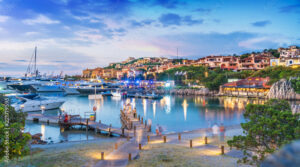Casu Marzu: Sardinia’s Notoriously Dangerous Cheese
Immersing yourself in Sardinia’s rich culture is akin to diving headfirst into a cornucopia of historic wonders, exquisite beaches, and above all, a spectrum of taste bud-tingling culinary delights. However, amongst the region’s famed delicacies, there lies a controversial dish that continues to baffle outsiders: Casu Marzu. This notorious cheese, often flagged as the world’s most dangerous cheese, offers an eating experience that extends beyond the traditional — a textured dance with the peculiar, risky, and surprisingly flavorful!
Delving into the Marzu Mystery: Unraveling the Secrets of Sardinia’s Infamous Cheese
To the uninitiated, Casu Marzu might seem like any ordinary cheese, but it’s far from benign and anything but standard. A derivation from the region’s Pecorino cheese left to decay under specific conditions, Casu Marzu transforms into its distinct state collectively through time, nature, and the kind assistance of some tiny, wriggly collaborators — the Piophila casei flies. These fellows, in a lively bout of hatched maggots, proceed to consume the cheese, breaking down its fats and softening the initially hard Pecorino into a pungent, creamy feast.
The Most Dangerous Cheese in the World: Unravelling the Risks of the ‘Maggot Cheese’

Casu Marzu, earning its title as the ‘dangerous cheese of Sardinia‘, is not lightly named. The very component that gives it its unique texture and flavor — yes, the maggots — pose a potential risk. Should the maggots survive the ingestion process and make it into consumers’ intestines, they could potentially cause pseudomyiasis, a condition characterized by severe abdominal pain, nausea, and bloody diarrhea.
The Verdict: Taste Versus Safety
Despite the potential hazards, many Sardinians stand by their beloved Casu Marzu. To mitigate risks, locals often consume the cheese with a strong spirit, like the local firewater Akvavit — intended to kill off any lingering maggots. You’d find them enjoying Casu Marzu at grand social events or family gatherings, viewing it not merely as a delicacy but a significant Sardinian tradition.
Banned yet Desired: Casu Marzu’s Legal Debates
Adding to the risky nature is the legality of Casu Marzu. The cheese has often been the subject of legal debate due to its health risks. While traditional in Sardinia, its sale was banned under EU health laws. However, it can still be found in the black market or made privately at homes.
This ban, rather than deterring its consumption, has led to its desirability among cheese enthusiasts and adventurous foodies, making it a sought after culinary treasure.
Story of Survival: Casu Marzu and Cultural Persistence
Despite the uncertainties, controversy, and peril surrounding Casu Marzu, this dangerously exciting cheese persists as an integral part of Sardinian culture. Celebrated for its bold flavor and unique production process, it stands as a testament to the region’s culinary bravery and dedication to maintain its traditional gastronomy — no matter how eyebrow-raising those traditions might be.

Bold Flavor, Braver Consumers: Casu Marzu’s Fearless Fandom
Despite the potential terrors lurking within its creamy depths, Casu Marzu has an undeniably engrossing allure. The flavor is described as intense, sharp, and unforgettable, with the creamy texture creating a delightful contrast — an amalgamation that, once tasted, is said to leave an indelible mark on the palate.

Casu Marzu, the dangerous cheese of Sardinia, thus fits perfectly into the controversial culinary landscape, inviting those willing to largely ignore potential perils in the pursuit of adventurous gastronomy. It serves not only as a dangerous cheese but also a daring test for gastronomes worldwide, eager to get a taste of the potent, weirdly-wonderful side of Sardinian culture! But remember to tread carefully — this culinary adventure is not for the faint of heart, or stomach!



